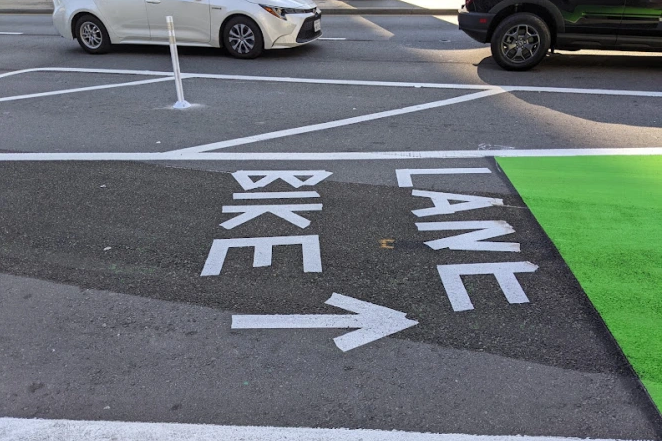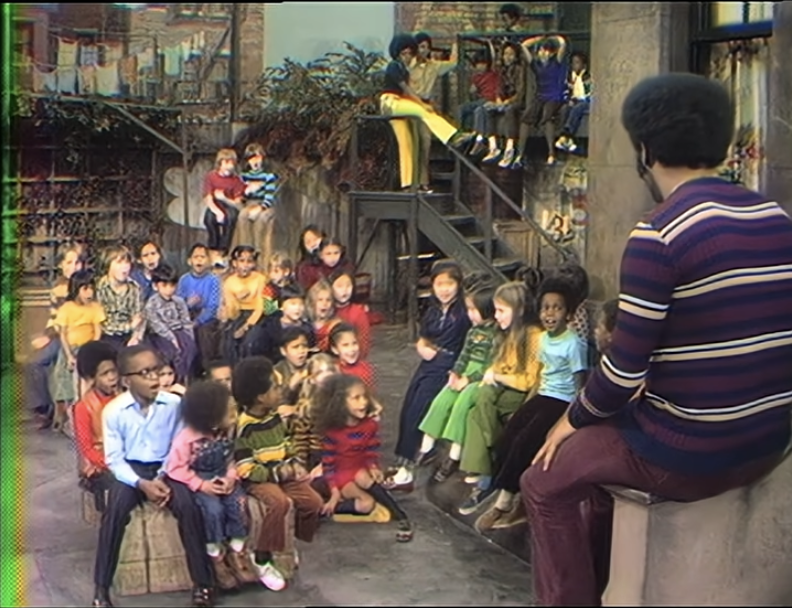Advocates and would-be advocates from around the country tuned in yesterday to a webinar about how to build political power to get safe bicycling infrastructure in their neighborhoods.
"You already have the power," said Carter Lavin, an advocate who developed the webinar. "You may just need to know how to apply it." Lavin's focus was on bike lanes and networks, but his outline of steps to build political power could apply to any problem.
"Bike lanes are an amazing piece of technology," said Lavin. "They make biking safer and enticing to more people, and they increase accessibility of biking for more kinds of riders. From a global perspective, increasing bike riding can reduce greenhouse gas emissions, and bike lanes are key to helping people go car-free."
A main point to remember, said Lavin, is that local governments own and maintain streets and roads, and they are the ones who make decisions about them. They follow federal guidelines, but they also follow long-established habits that tell them to make sure cars don't get jammed up and to worry less about the convenience of people walking and the safety of bike riders.
"The default is a dangerous society dominated by cars," Lavin told Streetsblog in a conversation expanding on his ideas.
But it doesn't have to be that way. Decision-makers can be pushed to make streets better designed and safer - but they have to see the value in it for them.
"Politicians, like anyone, want easy and smooth lives," said Lavin. "If it's easier to distract you, or over explain, or tell you to shut up - and it will work- they will do that. But if it's easier to get you to be quiet by making you happy, they'll do that."
A common response from local officials to requests for bike lanes and similar safety improvements is "we can't afford it."
"Excuse my language, but this is a bullshit excuse," said Lavin. "We can't afford it" means "I don't care about it." "Either they don't see its potential value for themselves, or they don't feel the pain of its absence" in the way that people outside of cars do.
"Bike lanes are cheap; there is always money," said Lavin. "We're talking about slivers of slivers of a municipal budget. This is not about money; it's not even about bike lanes. It's about priorities."
The key, he added, is to make elected officials care enough to act by showing them that the community wants change, thus compelling them to act. "When someone says no, they're saying you're not trying hard enough," he said.
"It's important for people to recognize and step into the power they have," he said. "You wouldn't take that from a spouse or roommate - if you asked them to stop drinking milk straight out of the bottle, you would expect them to change their behavior. Sometimes you have to demand change, and you do that by consistently pushing for it."
"Political power is a resource and a learnable skill," said Lavin. "It can be built, spent, wasted, stored, destroyed, and invested." He outlined clear steps to build political power, creating legitimacy, identifying how receptive your targets are - be they city council, mayor, public works department - and building support by talking and particularly by listening to people.
Start where you are, with whatever amount of power you already have, he said, and use that to build up more support. The biggest obstacle to getting what you want may be inertia. "Netflix and your couch are powerful," said Lavin. "And it is easy to do nothing. Building up power takes motivation and energy; these are both resources. On the other hand, despair and apathy help maintain the status quo. They are contagious, and you have to move beyond them."
Positivity is also contagious, and Lavin is relentlessly positive. A veteran of numerous campaigns both statewide and local, he is clearly an optimist. "There is no opposition," he declared. "Everyone wants to be safe on the streets." The key is to "have real conversations with people, to listen to them, and to talk about the drawbacks of the car-centric design we seem to be stuck with."
There will likely be loud and emotional responses, but the key, in Lavin's eyes, is to outnumber them.
A number of questions came up during the webinar about opposing arguments frequently used against bike lanes, and he offered a few specifics. "An effective bike lane is empty," he said, because bikes move through quickly. On the other hand, "bad streets are clogged with cars. When a bike lane is working well, you can't tell."
Also, "all street users prefer that different users - cars, bikes, pedestrians - be separated. It's just easier. So remember that drivers can be allies for adding bike lanes." For tangible evidence that bike lanes are valuable, look at studies done by groups like the League of American Bicyclists. They have numbers showing, for example, how bike lanes can buoy local retail. "This is why they make these reports."
He pointed out that European cities that are known as very bike friendly - "Seville, Paris, even Amsterdam - weren't bike cities until they were. And it took about a year to transform them."
Remember, too, that as you chalk up wins, keep your eye on the ultimate goals and larger strategy. "You don't want just one bike lane; you want a network of lanes." But at the same time it's important to stay flexible. "Figure out what you can get done now, and focus on that first."
One person doesn't have to know everything, or do everything. In fact, it's better not to try. Best is to be out talking to people as much as possible, to get community support, and invite other people to take leadership and further action. That's the core of building political power.
Lavin will present another version of this webinar next month, and he is also developing follow up trainings that will delve a little deeper into specific examples of applying his work.
He says he is "here to help you make the world a better place. Go kick some butts and save some lives."






